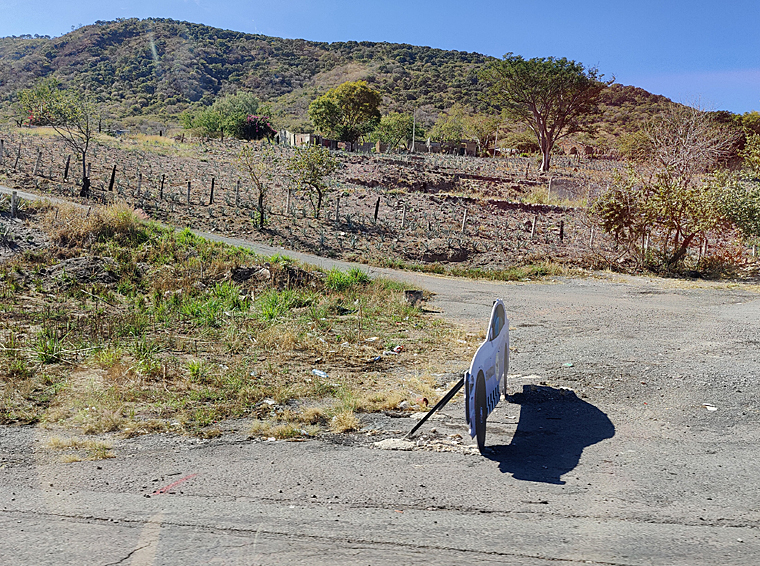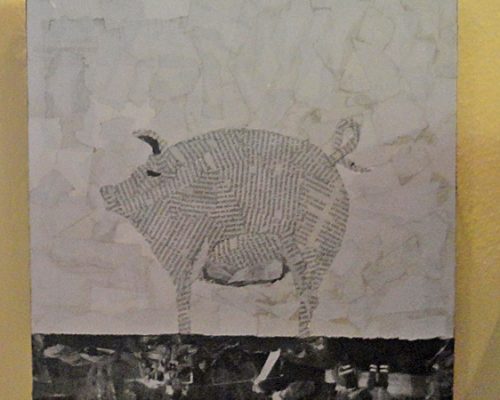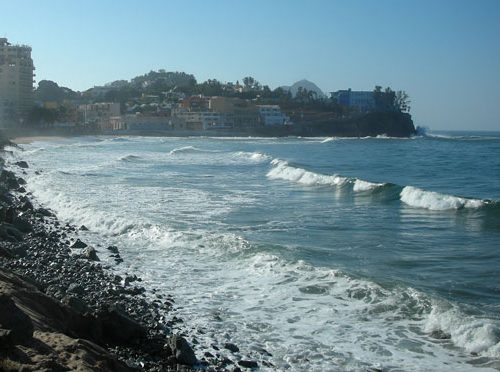If you are a new resident of Mexico, I am sure you are trying hard to learn the social norms of your new community. You want people to find you agreeable and to want to engage with you. The more you focus on learning these norms, the easier your transition will be – and in my opinion – the richer your life will be. So, here are my suggestions to get you started!
Always greet people when passing them on the sidewalk. Even if you don’t know Spanish yet you must learn “buenos dias” “buenas noches” and “buenas tardes” immediately. The only exceptions are in very crowded areas, if someone is having an animated conversation or on the phone or is obviously inebriated. Now that we’re not wearing masks so much, accompany your greeting with a smile and meet their eyes. In larger cities this generally is only done in your neighborhood, not in any retail areas. It won’t take long and you’ll get it! Oh, and if you see pass another gringo, please go ahead and greet them, too! This is a friendly country, please be friendly – to everyone!

Start an interaction with a few pleasantries. If you watch Mexican people go about their daily errands you will see that they don’t just march up to the tortilleria (for example) and say “un medio kilo.” First you would say “buenos dias” (if it is morning) and then “un medio kilo, por favor.” I can’t stress enough how important a little greeting is and also the thank you. If you don’t, this is one of those things that will make the seller look at you and (inwardly) roll their eyes. You don’t want that!
Be polite when walking. The sidewalks are narrow and it is important to be polite. If people are blocking the sidewalk a smile and a “con permiso” will be responded by them stepping back and saying “propio” (or it is yours.) When passing another person in a narrow spot both usually drop their shoulder and put their hand behind to make room to pass. You’ll get the hang of it soon enough!
Be friendly to your neighbors. I think gringos can be puzzling neighbors and making an error on the friendly side rather than the cranky side will go far. Also notice the neighborhood norms. Everywhere I have lived a norm is the morning sweeping and washing of the sidewalk in front of your house. You’ll see first the sweeping and then a bucket of water thrown – cup by cup – on to the sidewalk and then swept again. Make sure to also pick up any wind-blown (or deliberately left) trash outside. And while you’re doing all this it is a great time for little chats or greetings with people who walk by!

More things to know about greetings in businesses that are not predominately gringo. For example, when you enter a small clinica or veterinaria or tienda – when you walk in, greet the person behind the counter with a smile and a “buenos dias.” If it’s a place with a waiting room, please say a cheery “buenos dias” to the waiting room and most will return the greeting. Then head to the receptionist. When you leave after your appointment concludes, please tell the room “con permiso” before you walk out. I love these greetings and it hurts my head to see gringos barge through a room and then demand something of the receptionist without any of these niceties.
Practice helping others face to face. I believe in charitable giving and I encourage you to give money to organizations that help others. (My favorites are Foodbank Lakeside and Tepehua Community Center if you would like to contribute to their efforts!) But here I am talking about helping individuals. I try to keep a few coins and bills in my pockets so it is easy to give when asked. Also try to be aware of more nuanced situations – I noticed a neighbor kind of hemming and hawing when I asked how her sick husband was doing. It finally dawned on me (I have a hard time with her Spanish) that he needed tests that weren’t available where he goes (or something like that.) So that’s when I asked if I could offer my help and when she said yes I gave her some money. And the giving of money is something to think about – I always think of the way the Japanese give you their business cards, holding it with two hands and a little bow. That’s not really what I do but I try to make the giving of it be very respectful. I’m sorry, that’s hard to explain.
Don’t assume that because they speak English they really understand you. I hear gringos rattling away in English to a waiter and while he does speak English, it isn’t so good that he can keep up. Please do your best to learn some Spanish, it will really make life easier.
Everyone here hoards small money. It’s just a fact of life! Most small sellers have a very small daily “float” if they have one at all. So when a newbie offers them a 500 peso note for a 50 peso sale they have to either refuse the sale or run around to the nearby stores to see if they can get change. And yes, I know a 500 peso note is less than $25 USD! It shouldn’t be that hard, but it just IS! So go ahead and hoard your small money like everyone else does. Here’s something that happened to us this morning. We bought a few groceries and I gave all the change in my pocket (probably about 12-15 pesos) to the gal who bagged our groceries. Then off we went to the ferreteria for a few nails to hang pictures. (the twisty concrete ones) The sale came to 3 pesos! 15 cents USD! And the smallest bill we had was a 100 peso bill. They just waved us off, told us bring it next time but yes, I was embarrassed!
Mexico loves lots and lots of documents, get used to it! No matter what the interaction – at the bank, for a Covid vaccine, for a driver’s license, when paying your annual water bill – whatever it is you will need more documents than seem reasonable. Copies of your passport, Mexican Visa, CURP and RFC numbers, electric and phone bills, and various other documents are required often. Just bring them with you and you might get your errand done in one trip. Or maybe not. Electric bills (CFE) are probably the most important proof of address. And there is often the added frustration that your CFE bill might fly down the street as it was just stuck in the crack in your door, so you don’t have an actual copy, just your payment receipt. Laugh about it, that’s all you can do!
More greetings I love. Mexicans entering or leaving a restaurant will always greet anyone eating with a “provecho” as they pass by. I love this and do it myself, always wishing that more gringos also participated in this little word of blessing and generosity from one stranger to another.
Time in Mexico is always fluid. “Un ratito” with a little finger pinch means they’ll only block your driveway for a little second but is generally much longer. A party invitation time is only a suggestion but an appointment at the dentist or the attorney is an exact time appointment. And of course if a store tells you that something will be in stock in “quince dias” just forget about it, 15 days will never come.
I hope that you have found some of these explanations helpful. Let’s all do a better job at being friendly, kind, and understanding members of our community.
All photos here were taken from the car last Wednesday as we drove back to Lake Chapala from our three week trip to Mazatlan.
If you’d like to receive an email when there is a new post, please sign up in the box at the top right of the page. No spam, ever, of course.




Kathie
December 2, 2022Such an excellent post! Although I have been to Mazatlan twice a year for the last 10 years, some of these were new to me and I thank you for pointing them out.
Nancy
December 2, 2022Thanks Kathie, I had hoped people would find this useful.
Kathi
December 2, 2022All great advice! I find everyone appreciates you making an effort, even if your Spanish is not perfect. A little acknowledgement goes a long way.
Nancy
December 2, 2022Hi Kathi, Thank you! Yes, making an effort speaking at least some Spanish is appreciated for sure. And a smile!
Wendy Bernadette KAIN
December 2, 2022Oh thank you so v v much for mentioning the big notes issue. I HATE how so many gringos think they are justified in giving tienda owners 500 peso notes , firstly because the tienda owner will accept it pleasantly even if he has to go and make arrangements with the neighbour, and secondly because if s/he takes out money from an ATM in four transactions instead of one s/he incurs fees. [Sighing] Gracias Nancy.
Nancy
December 2, 2022Hi Wendy, There are so many things like this we know after being here a while but a newbie has so much to learn. Thanks for commenting.
William
December 3, 2022The ATMs in Mexico City almost always give you nothing but 500 pesos bills. I always go into the bank immediately and ask them to exhcange them for smaller notes. Banorte is very accommodating about this, but Scotiabank will not exchange more than 3000 pesos.
However, on my latest trip, I found myself hanging on to some 500-peso bills. With inflation, I am usually spending more than 500 in the supermarket and at restaurants for dinner for two.
Nancy
December 3, 2022Hi William, Thank you for your comment. We know a few local tiendas that always have change for a 500 and we often make a small purchase just to get change! Everyone has to figure out what works for them!
I hadn’t looked at your blog in a while, but have always enjoyed it. Congratulations on your plan to move to Mexico full time next year! Best decision of my life!
William
December 3, 2022Glad you enjoy my blog. I just added yours to my blog list, something I have meaning to do for some time.
Deborah A.
December 3, 2022And about those many documents: always check the oven in a new place before lighting it! Many Mexicans don’t ever use their ovens and papers end up stored there. Once we realized that the neighbourhood panadería and pastelería would provide us with all the baked goods we’d ever want (and we don’t eat meat or roast vegetables) we did the same.
Nancy
December 4, 2022Deborah, Documents in the oven,that’s a new one on me! I have seen lots of kitchen stuff stored there, but never papers! Good to know!
Pete Larson
December 4, 2022It’s nice to know a few courtesy words and phrases in Spanish, but in my experience, actually speaking the language opens doors that could be opened in no other way. When we were working, most of us didn’t have time to learn Spanish, but now that we’re retired we have no excuse. Start studying. The rewards are immense!
Nancy
December 4, 2022Pete, You are so right! We have noticed newbie behaviors both in Mazatlan and here at Lake Chapala, so I thought a basics niceties course would be good. But YES to learning Spanish! I have been at it for years and while I sometimes get tongue tied and intimidated for the most part I can have the conversations I want without a problem. THis morning I took a yoga class on the Chapala malecon all in Spanish and did fine. Nice to hear from you, I hope all is well with you!